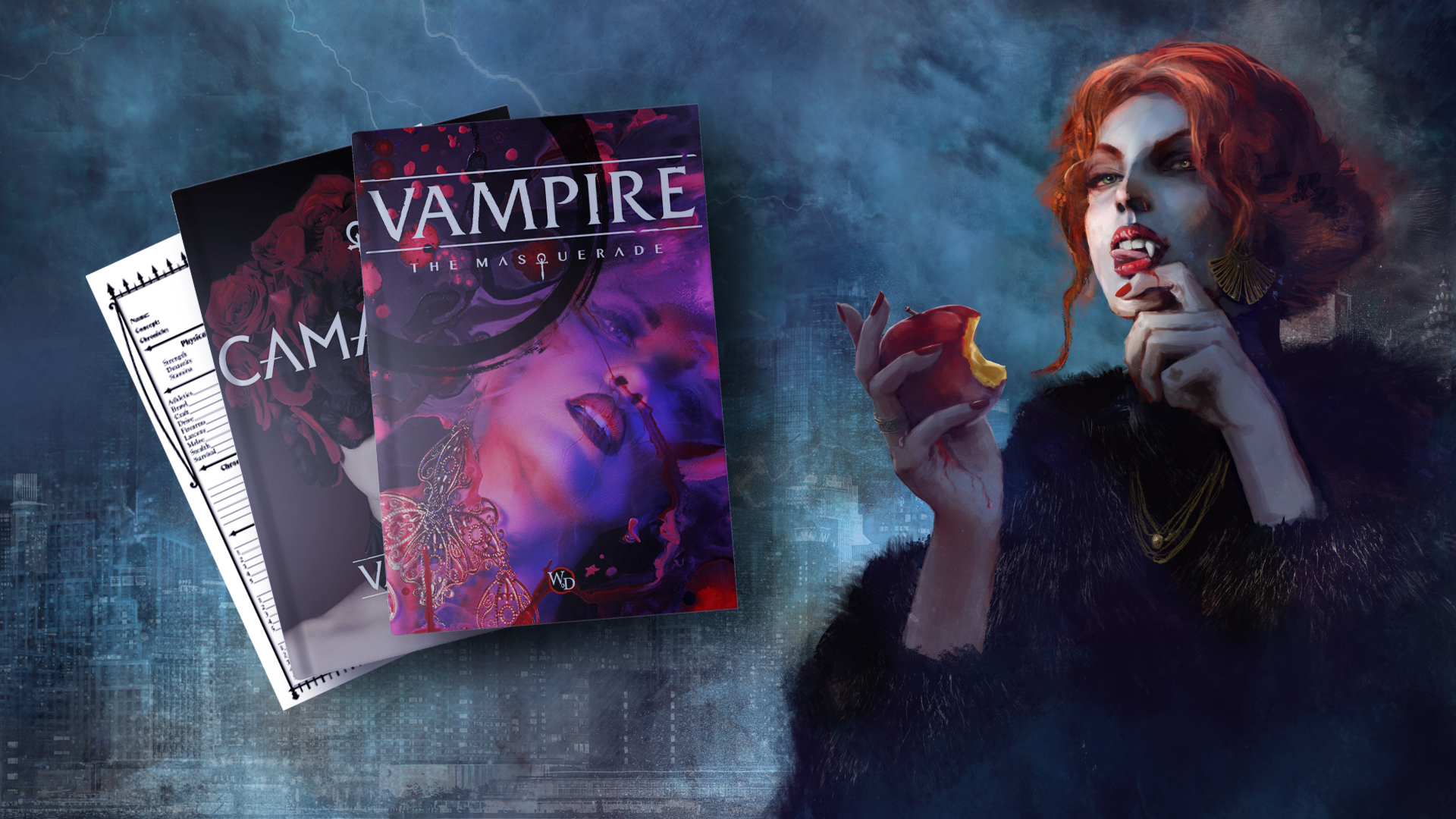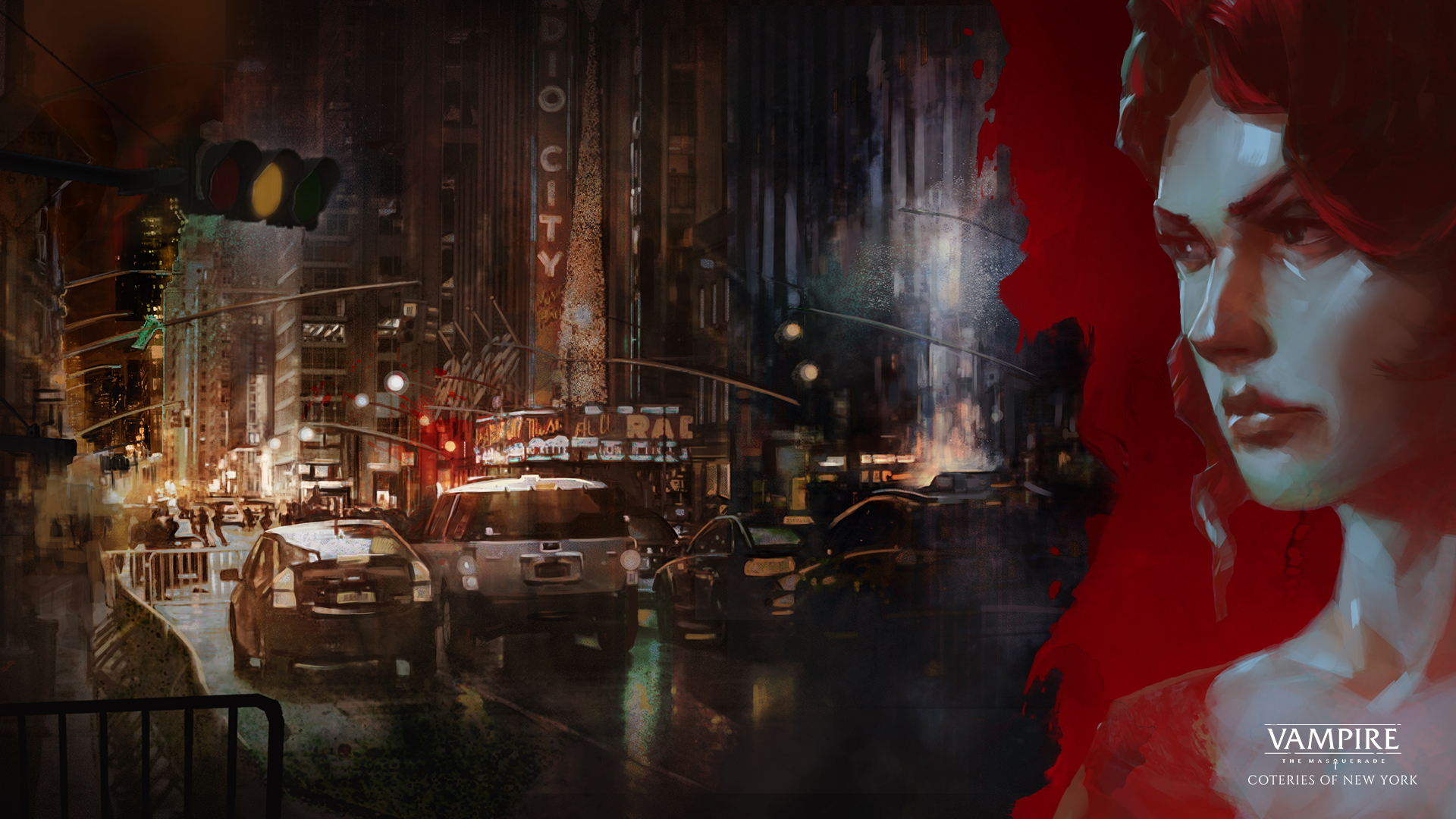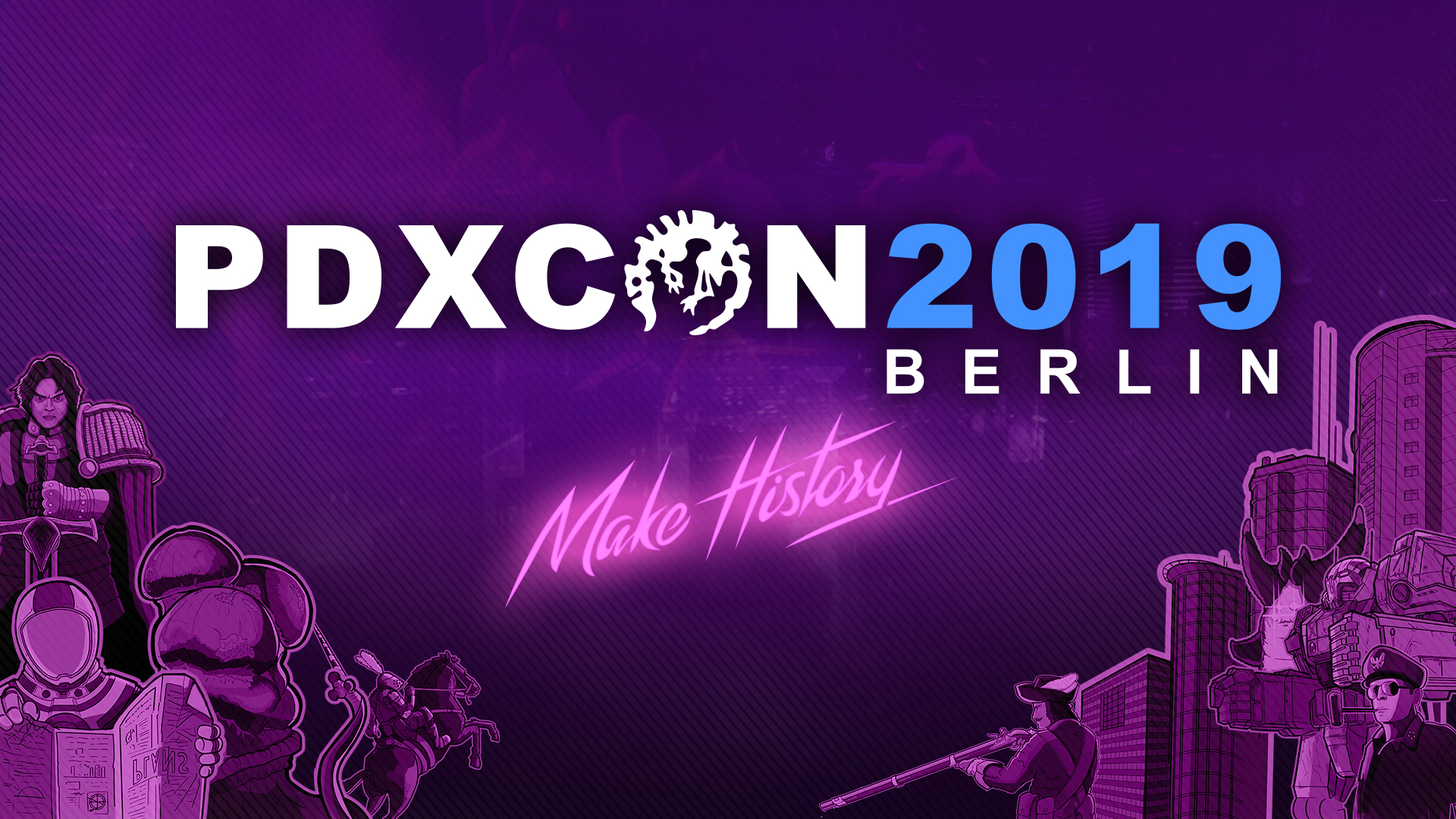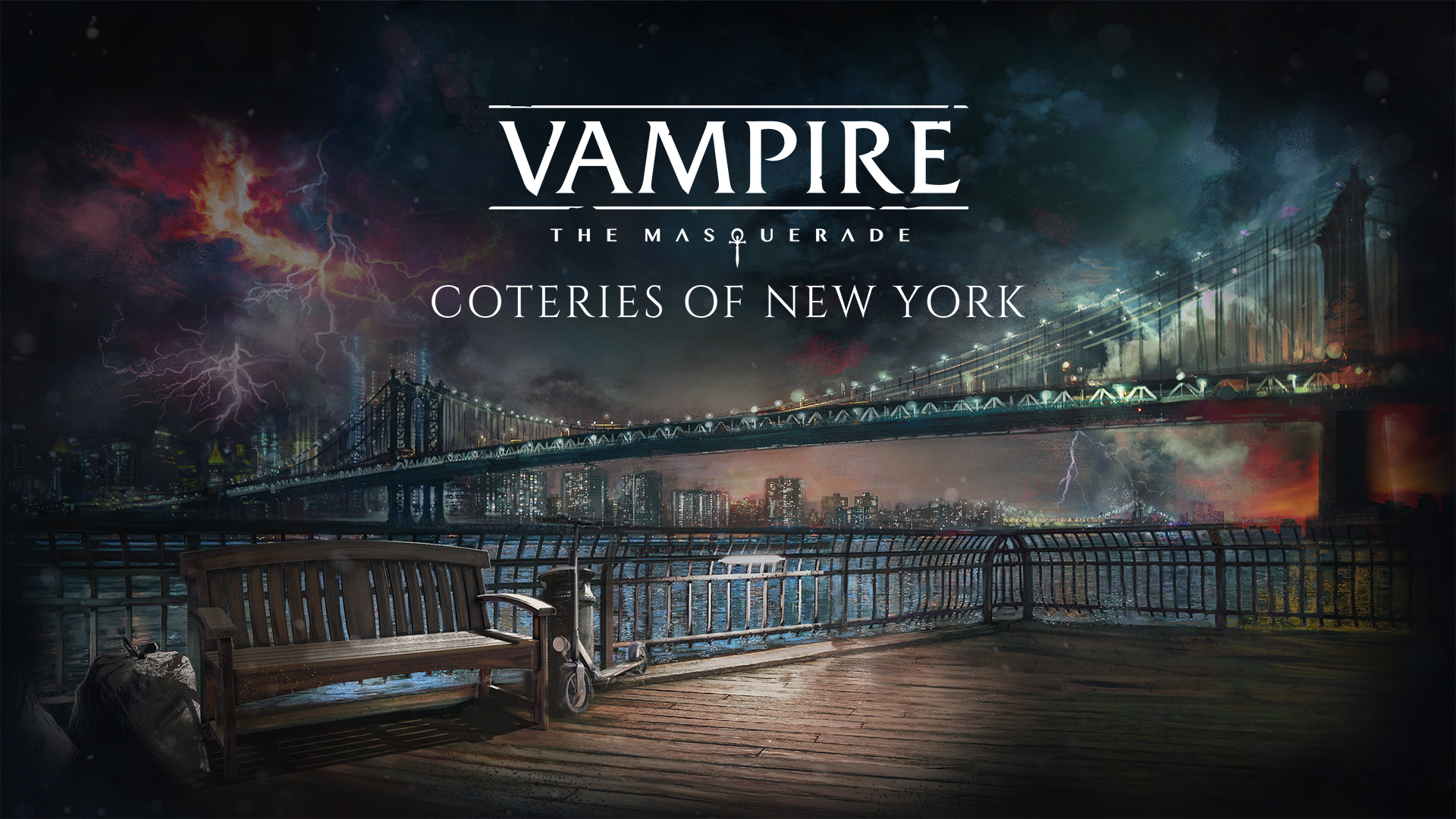
Adapting a tabletop role-playing game into a narrative video game format
Hey everyone, Kris here. Shorter note today as we are finishing up the demo that we’re going to share with the guests of PDXCon next week (more on that in a future note) – I’d like to write a bit about how we approached adapting a tabletop role-playing game property into a narrative game format.
First, some info about me – I’ve been playing tabletop RPGs since 1999. It’s been one of my favourite hobbies for all that time, even though I haven’t really played as much as I’d like until relatively recently (2015 or so is when I managed to really hit things off!), but I collected books and GM’d a number of different systems. I always loved the potential for interactive (and collaborative) storytelling that tabletop RPGs allowed, and so the story – not the mechanics, really – were always at the forefront of that interest.
It’s no secret that Vampire: The Masquerade also tends to value the personal stories and conflicting motivations of characters rather than their stats. The current rule set – V5 – has definitely put some interesting twists on the mechanics (adding Hunger dice was a stroke of brilliance on the part of the dev team, hats off!), but it remains, first and foremost, interested in what those mechanics mean in the story, not the other way around. Given all that, adapting what the game values most into a narrative-focused game was generally easier than you’d think.
These days, when you say “RPG elements” in the context of a video game, most people will think of levelling up, weapon stats, unlockable abilities etc. Well, for one thing, good luck finding any of those in the core meaning of the term “role-playing game”, unless you squint really hard and Devil’s Advocate it the whole way through… but, that personal pet peeve aside, obviously what that approach is (mostly) missing is thinking about who the characters that you play are, and how their history, motivations and personality factor into decisions that the player is allowed to make about what those characters do in the gameplay. If you laser focus on that, and scrape away most of the mechanics, leaving only those that are crucial to impact the story you’re telling… you’re essentially making a role-playing game, just without the things commonly (and, I argue, somewhat erroneously) associated with the genre in the video game space.
Of course there’s one thing that no video game can ever do, and that’s to have a collaborative answer to everything you’d like to do in a given situation. A person on the other side of the table can do that, a computer program, with its inherent limitations (for the most part, the only things that are there have been put there on purpose) can never hope to mimic this intuition-driven improvisation. And so, the key here is to provide the players with enough choice to make it feel like they have the option to do what they would intuitively think about doing in that situation. Your mileage may vary, obviously, and sometimes the option that comes to your mind won’t be there… but again, that is the inherent limitation of a video game. If you ever wish to play a game in which that constraint is not present, might I suggest grabbing a few friends (or heck, finding some willing strangers on one of several RPG-devoted platforms, like Roll20 or Fantasy Grounds) and starting playing a tabletop RPG?
I heard Vampire: The Masquerade is pretty good… 😉
Until next time!
DO NOT MISS NEWS ABOUT THE GAME
SUBSCRIBE
Error: Contact form not found.




